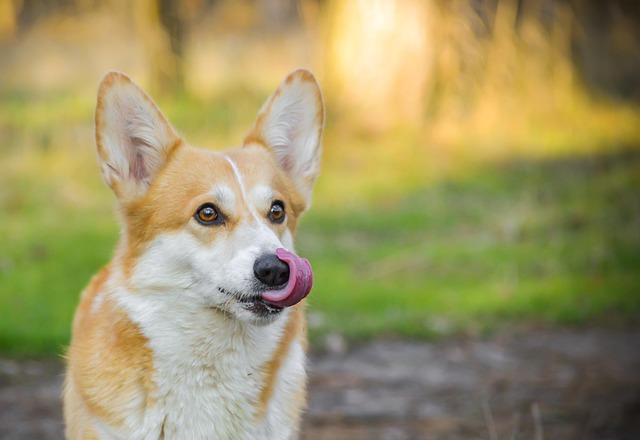
What is glaucoma in a dog?
You might notice your dog squinting more at mealtime or avoiding bright sunlight—these small changes could be early signs of a serious eye condition.
The moment we bring a furry dog into our home, we assume the responsibility of taking care of it for its entire life. From providing a warm kennel to offering sufficient food and water, every detail is related to the dog's health and well - being. Among the numerous aspects of dog care, vaccinating dogs is an extremely important step that is often overlooked by some owners. So, "Is It Ok if I Don't Vaccinate My Dog?" The answer is clearly no.
Vaccines are like a solid line of defense for dogs, protecting them from various deadly diseases. Let's first get to know some common vaccines for dogs and the diseases they prevent. The canine distemper vaccine is used to prevent canine distemper, a highly contagious viral disease. The virus spreads mainly through the air and by contact. Once a dog is infected, in the initial stage, it may exhibit symptoms similar to a cold, such as fever, coughing, and a runny nose, which can easily be ignored by the owner. However, as the disease progresses, it can trigger serious respiratory and digestive problems, and even lead to convulsions and neurological symptoms, with a very high fatality rate. Watching a once lively and lovely dog being tortured by illness, its body convulsing and its eyes filled with pain and helplessness, every owner would surely feel heart - broken.
The rabies vaccine is even more crucial. Rabies is an almost 100% fatal zoonotic disease. It not only poses a serious threat to a dog's life but also has unthinkable consequences if transmitted to humans. Just imagine that due to your own negligence, you didn't vaccinate your dog against rabies. If the dog unfortunately gets infected and accidentally bites someone, causing that person to be plunged into endless fear and pain, what a heavy burden and regret that would be.
 The parvovirus vaccine should not be ignored either. Parvovirus mainly infects puppies, attacking their intestines and immune systems. Infected puppies will experience severe vomiting and diarrhea, and their excreta will have a strong, foul smell. Puppies will rapidly become dehydrated and emaciated, and their vital signs will decline sharply. These little lives are so vulnerable in the face of illness, and we can definitely provide them with a protective umbrella through vaccination.
The parvovirus vaccine should not be ignored either. Parvovirus mainly infects puppies, attacking their intestines and immune systems. Infected puppies will experience severe vomiting and diarrhea, and their excreta will have a strong, foul smell. Puppies will rapidly become dehydrated and emaciated, and their vital signs will decline sharply. These little lives are so vulnerable in the face of illness, and we can definitely provide them with a protective umbrella through vaccination.
If you choose not to vaccinate your dog, the risks are multifaceted. In terms of the dog's own health, unvaccinated dogs have almost no resistance against viruses and bacteria. It's like being naked in a hail of bullets, and they can be struck down by illness at any time. During a dog's social activities, such as playing in a pet park or interacting with other dogs, the probability of getting infected with infectious diseases increases significantly. Once an unvaccinated dog gets sick, not only is the treatment process long and painful, but the medical expenses can also put a great deal of pressure on the owner. Moreover, during the dog's illness, the owner will be extremely worried, feeling tormented as they watch their dog suffer.
From a public - health perspective, unvaccinated dogs can become sources of infection, threatening the health of other animals and humans. Especially for infectious diseases like rabies, once they spread, they can cause panic in the entire community. For the environment we live in and the safety of every life around us, vaccinating dogs is our unshirkable responsibility.
Some owners may be worried about the side effects of vaccines. Admittedly, some dogs may experience some mild reactions after vaccination, such as redness and swelling at the injection site, temporary lethargy, and a decreased appetite. However, these reactions are usually temporary and are negligible compared to the huge risks of not vaccinating. Moreover, professional veterinarians will carefully assess a dog's physical condition before vaccination to determine whether it is suitable, minimizing the risks.
When we decide to become a dog owner, it means we need to provide them with all - round care. Vaccinating dogs is a small sacrifice in exchange for their long - term health and happiness, and it's a concrete way for us to express our love. Don't let momentary hesitation and a chance - taking attitude leave irreparable regrets for both the dog and yourself. Let's take action and take our dogs for vaccination on time, allowing them to spend every wonderful moment healthily and happily under our care. Because they are our loyal companions, and we are their whole life.

You might notice your dog squinting more at mealtime or avoiding bright sunlight—these small changes could be early signs of a serious eye condition.

Let’s set the scene: It’s a sweltering Phoenix afternoon—105°F outside—and you rushed your 2-year-old Lab mix, Cooper, on a quick walk to “get it over with.”

Let’s get real: You’re in your Miami apartment, watching your 3-year-old Corgi, Loki, struggle to climb the stairs to your second-floor unit.

Many dog owners brush off occasional scratching as just “dog behavior,” but persistent itching often signals something more—like a food allergy.

You might first notice your dog scratching more than usual—chewing at their paws until the fur looks thin, or rubbing their face against the couch nonstop.

Let’s be real: You’re standing in your Chicago apartment, watching your 3-year-old Beagle, Max, huff and puff just to climb onto the couch.